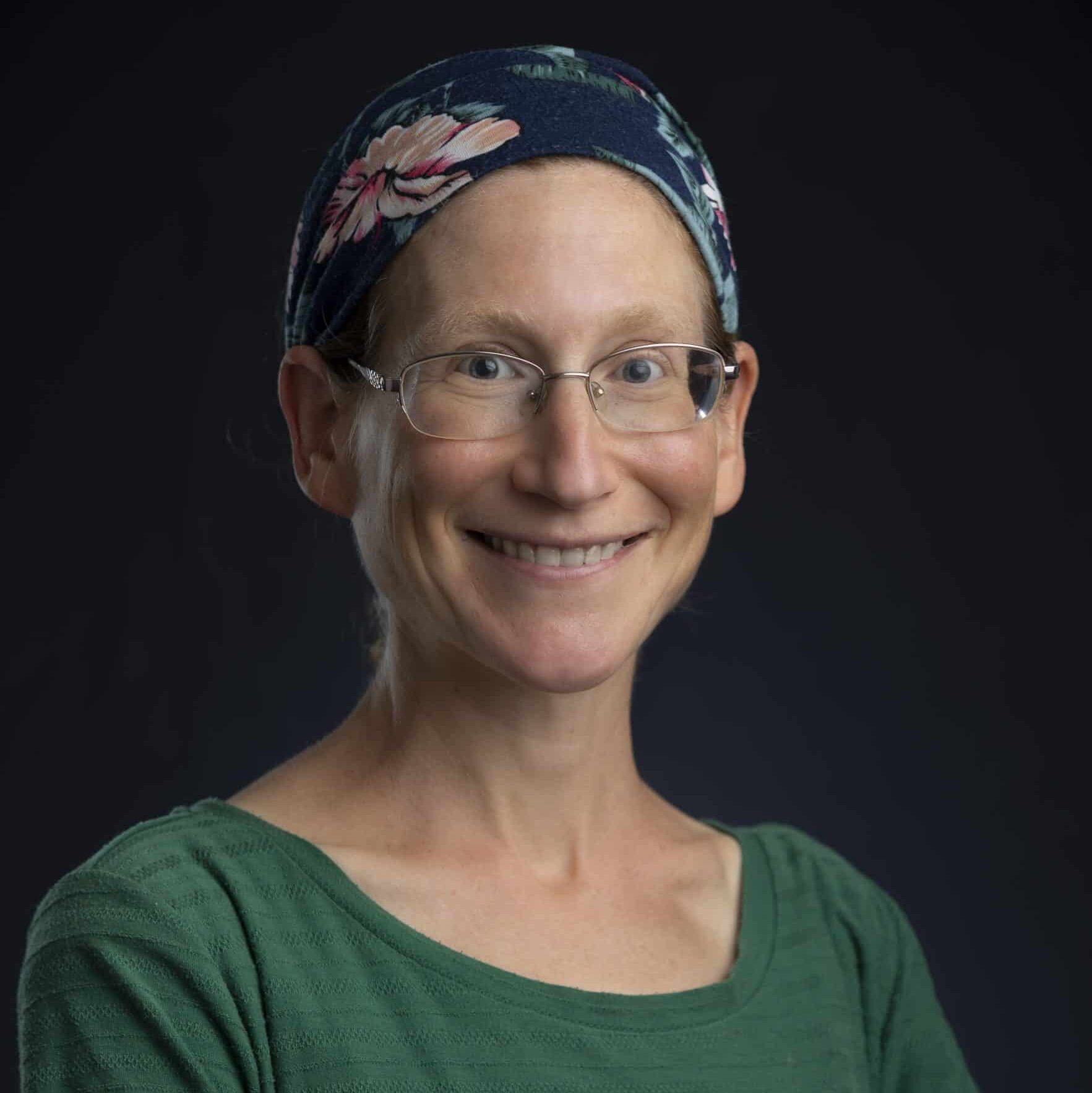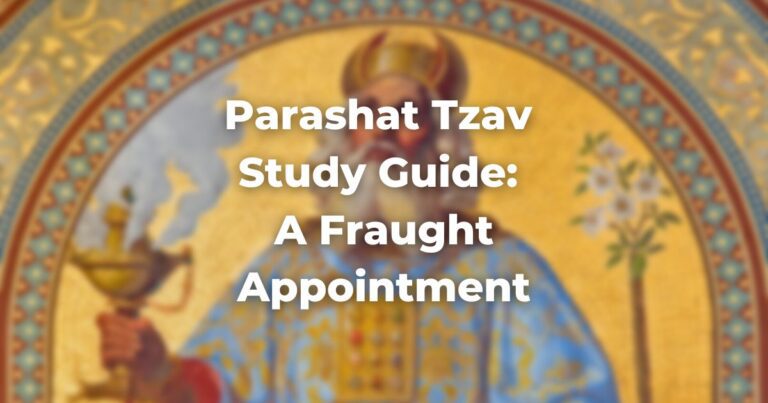This week’s parashah contains God’s instructions to Moshe concerning Aaron’s entrance into the holy shrine of the Temple to achieve atonement.
The priests and their sacrifices
The Torah describes in great detail how the high priest is to cast lots upon two goats—one marked for God, and one marked for Azazel—and sacrifice a bull as a sin offering to atone for himself and his household.
He must then scoop a pile of glowing coals from the altar, along with two handfuls of incense, and bring them behind the curtain on the fire burning before God, raising a cloud of smoke. He sprinkles blood over the curtain covering the ark, and applies blood to each of the four corners of the altar, before sprinkling the rest of the blood with his finger seven times to atone for the sins of the people.
These rituals, familiar to us from the Avodah service chanted during Musaf on Yom Kippur, became the basis for the Talmudic tractate Yoma—Aramaic for “the day”—which consists primarily of a step-by-step description of the activities of the high priest in the Temple on Yom Kippur.
Seven of the eight chapters in tractate Yoma are focused on this ritual activity, and as such, they ostensibly have nothing to do with Yom Kippur as we observe it in a Temple-less world. But the rabbinic discussion of Temple worship suggests that the principles and ideals underlying ritual sacrifice are in fact the basis for the type of religious worship that God demands of us today, not just on Yom Kippur but on every day of the year.
Precision of sacrifices on Yom Kippur
The rabbinic discussion of the high priest’s activities on Yom Kippur is focused on the precision and accuracy with which each step must be taken.
The rabbis insist that in order for the high priest to achieve atonement for himself and the people, he must ensure that he follows the order of the complete ritual narrative outlined in our parashah and expanded upon by the sages, allowing for no errors or lapses. For instance, the Torah teaches that the priest “shall take from the blood of the bull and of the goat and apply to each of the corners of the altar” (Leviticus 16:18).
The rabbis stipulate that if the blood spilled on the floor when the animal was slaughtered and was then collected in a vessel for use when applying it to the altar, the sacrifice is considered invalid, because the Torah says that the priest must take “from the blood of the bull,” and not from the blood on the floor (Yoma 48a).
Only if the blood is properly received and sprinkled can atonement be achieved. Here, as throughout the tractate, the rabbis emphasize the high priest’s perfectly accurate performance of the rites detailed in our parashah.
It is not just the high priest’s actions that must be performed in strict accordance with a pre-ordained script; his thoughts and intentions, too, must be perfectly aligned with the requirements of the day.
The rabbis teach that if the priest merely plans to perform certain sacrificial actions incorrectly—even if he in fact does everything right—the sacrifice is declared invalid as if those forbidden acts were actually performed. For instance, if he scoops handfuls of incense from the altar while intending to burn it after the appropriate time for burning, this thought invalidates the sacrificial rite (Yoma 48a).
Precision of sacrifices everyday
This emphasis on correct thought as well as correct action applies not just to the high priest on Yom Kippur, but to every priest offering a sacrifice in the Temple.
A sacrifice becomes disqualified if the priest merely plans to consume the meat outside of the Temple precinct, or if he plans to consume it after the designated time for eating that particular sacrifice.
Even if the priest actually eats the sacrifice in the right time and place, an improper intention at the time of slaughtering renders the sacrifice invalid.
When it came to sacrificial worship, the rabbis insisted on the perfect and accurate performance of stipulated activities, along with perfect and accurate thoughts and intentions.
As Mira Balberg demonstrates in Blood for Thought: The Reinvention of Sacrifice in Early Rabbinic Literature (2017), the rabbis believed that sacrifice was less about creating a channel of communication between people and God than it was about the accurate and attentive performance of divinely stipulated actions.
Atonement on Yom Kippur was not based on the sincerity of the people’s contrition, but on the high priest’s precise adherence to the ritual narrative outlined in our parashah, as elaborated upon by the sages in tractate Yoma. As such, Temple worship was less about piety than precision. It is not the offerer’s willingness to give up a choice animal to God that the rabbis valorized, but rather the priest’s steadfast, accurate, and devoted performance of the sacrificial rites.
As Balberg contends, such steadfastness, accuracy, and devotion were regarded as a model of religious life in a world devoid of a Temple. For the rabbis, sacrifice was about the meticulous and scrupulous performance of required actions, offering us a way of thinking about what it means to live in accordance with the dictates of halakhah.
This notion of sacrifice as perfect action may seem just as archaic as sprinkling blood and casting lots for goats. In our modern world we tend to more closely associate devotion with purity of heart than with strict adherence to a pre-ordained script. Devotion is more closely associated with purity of heart than with strict adherence to a pre-ordained script.
But as the rabbis understood, living a life of Torah and mitzvot is also about subsuming one’s own priorities and preferences to the will of God—“Make His will into your will,” as Rabban Gamliel teaches in Pirkei Avot 1:4. We are charged to privilege what God demands of us over whatever it is we might want to do at any particular moment. To give just one example: A halakhic Jew does not wake up and do whatever she feels like doing; a halakhic Jew wakes up and davens.
Perhaps we might think of the perfect adherence to God’s will as a model for devotion and attentiveness in all aspects of our lives.
Can we be as wholly present for the person sitting before us on a low stool at a shiva house as the high priest was present and focused on carrying the incense into the Holy of Holies on Yom Kippur?
Can we be as steadfastly committed to eradicating poverty as the priest was focused on clearing off the ashes from the altar?
God does not need our sacrifices, as the biblical prophets eloquently and repeatedly insist.
But God’s world stands much to gain from the intense devotion that sacrificial worship entailed, and as such, the actions of the high priest in our parashah are a paradigm for us all.
[See more on Yom Kippur]
See more: Parashat Acharei Mot
Originally posted as part of the Conservative Yeshiva at the Fuchsberg Jerusalem Center’s Torah Sparks. Support Torah learning from the Fuchsberg Jerusalem Center/Conservative Yeshiva for leaders and seekers around the world here.
Authors
-

Ilana Kurshan teaches Talmud at the CY. She is the author of If All the Seas Were Ink (St. Martin’s Press, 2017) and Why is This Night Different From All Other Nights (Schocken, 2005). She has a degree in History of Science from Harvard and in English literature from Cambridge, and has worked in literary publishing both in New York and in Jerusalem – as a translator, a foreign rights agent, and as the Books Editor of Lilith Magazine. Since October 2020, Ilana has been a regular contributor to Torah Sparks, FJC’s weekly parashat hashavuah blog.
-



The Fuchsberg Jerusalem Center (FJC) is a home in the heart of Jerusalem where leaders and seekers can find an authentic place in Jewish tradition to call their own. FJC offers opportunities to study, pray and explore within an egalitarian and inclusive setting, creating multiple pathways for finding personal and communal meaning.




